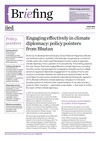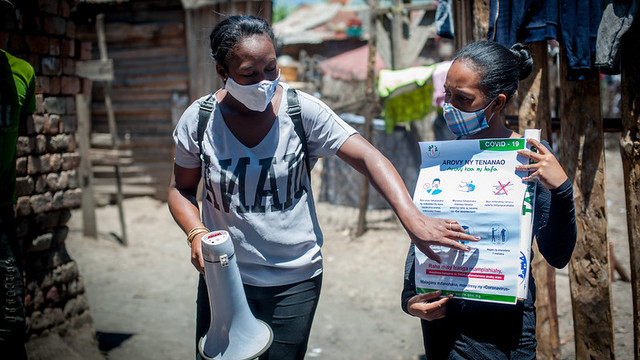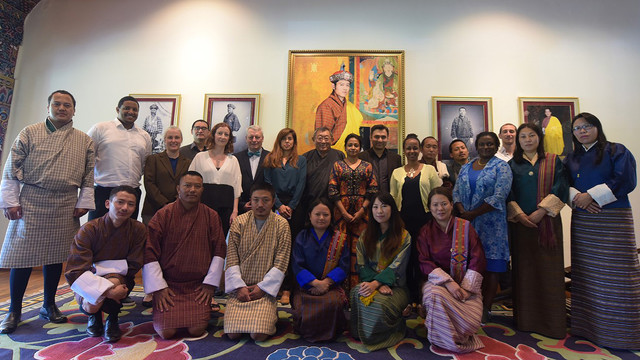Helping poorest nations engage in climate diplomacy
Reaching equitable outcomes for the poorest countries through international decision-making processes involves more than attending formal negotiations. IIED works to support least developed countries (LDCs) increase the influence of their climate diplomacy.

The Gambia hosts the Cartagena Dialogue in 2015, bringing together representatives and ambassadors from 28 countries to discuss priorities for what will become the Paris Agreement (Photo: Brianna Craft/IIED)
For national governments across the world, climate change has become one of the most pressing political challenges.
Countries are approaching the issue of climate change as a top domestic and foreign policy priority, setting out how it links to other areas of national interest, from economic development to national security. They are also showing a growing commitment to working with other nations and states to drive global climate action.
This is climate diplomacy in practice – and it's crucial for an effective international response to climate change.
The least developed countries (LDCs) are among those actively engaged in climate diplomacy. Heavily exposed to climate change, it is in their national interest to pursue international action that will help manage its impacts. But participating in international decision making presents a far greater challenge for them than for other developing and developed countries.
This is mainly because the financial resources they can devote to diplomacy are low, and their capacity to interact in (often English-speaking) diplomatic forums is limited.
Despite these challenges, LDC representatives lead the promotion of ambitious and equitable climate decisions at a global level and have formed alliances that brought about the Paris Agreement. They also agree to act to reduce emissions with their neighbours, plan to adapt to climate change impacts together in regional groups, and engage in public diplomacy – striving to tell foreign publics about the urgent need for climate action.
What is IIED doing?
IIED aims to help LDCs increase the influence of their climate diplomacy. In addition to supporting the LDC Group in the United Nations climate change negotiations, IIED directly supports the LDC Group chair and other climate diplomats to engage in minilateral forums and summits – such as the Global Climate Action Summits in California (2018) and New York (2019), and German Chancellor Angela Merkel's Petersberg Climate Dialogue.
IIED provides real-time legal and strategic advice and on-demand research support to prepare them for these discussions, and coordinates the logistics of attending.
Some LDC governments have also appointed specific diplomats to work independently of these established forums and carry their climate change messages abroad.
The Gambia, for example, became the first LDC to appoint a Special Climate Envoy in March 2013. From 2013-16, IIED supported Pa Ousman Jarju to undertake diplomatic missions to the United States, the European Union and China – forging relations between these nations and the LDC Group in a manner not done so before.
IIED continues to help LDC climate diplomats shape and use strategic messaging about climate change to influence. IIED supports their efforts to write opinion pieces, host press conferences and interact with media outlets around the world.
News and updates
Publications
Additional resources
Blog: 2020 in review: climate impacts in the least developed countries, Gabrielle Swaby (April 2021)
Astute diplomacy needed for a successful summit, Gabrielle Swaby (2020), ECIU blog
The Paris Agreement and the LDCs, Achala Abeysinghe, Brianna Craft, Janna Tenzing (2016), IIED Issue paper
















